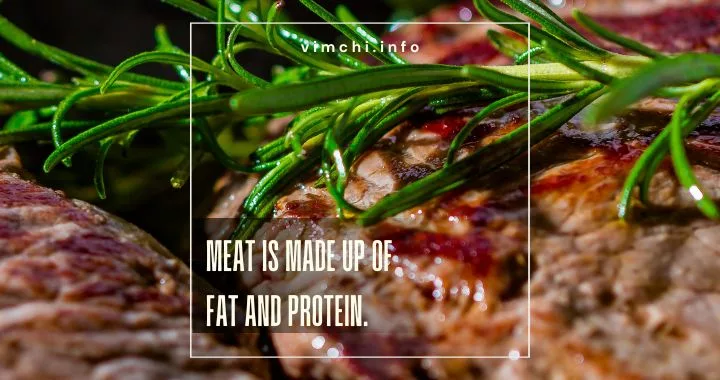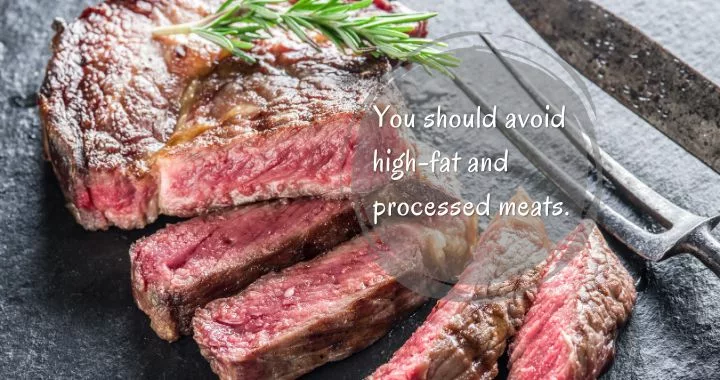There is no short answer to it. But the carnivore diet defies conventional wisdom. It encourages indulgence in a forbidden feast of animal products while limiting the consumption of plant-based foods. It has garnered attention as a potential “cure” for diabetes. But is the carnivore diet for diabetes a healthy solution for your high blood glucose?
Let’s find out here.
Carnivore Diet for Diabetes: Does Eating Meat Reduce Diabetes?
The answer is not a simple yes or no. It depends on the type of meat, portion sizes, and overall dietary context.
Diet plays a vital role in the development of this disease. Dietary choices can significantly influence your blood sugar levels and overall health. Traditionally, doctors recommend emphasis on eating a balanced diet, high in whole grains, fruits, vegetables, and lean proteins. They also suggest minimizing the intake of sugar and unhealthy fats.
There is a relationship between meat consumption and the risk of developing diabetes. While the evidence is not entirely straightforward, several suggest that certain types of meat, particularly processed and red meat, may be associated with an increased risk of type 2 diabetes. Factors such as high saturated fat content and cooking methods may contribute to this association.
That said, it is best that you consume lean cuts of meat. Opting for lean cuts while limiting processed meats and incorporating a variety of protein sources into your diet may help mitigate potential risks.
Is the Carnivore Diet Great for Diabetes?
There is no straightforward answer. The carnivore diet inherently restricts carbohydrate consumption to almost negligible levels. It could lead to better blood sugar control, as carbohydrates are a primary driver of glucose spikes
A high-protein diet can promote satiety and help in weight management, a significant concern for many individuals with diabetes.
It also excludes processed and sugary foods, which are detrimental to blood sugar control.
This diet remains a subject of intense debate within the medical and nutritional communities. While some individuals report significant improvements in various health parameters, others express concern about the potential health risks associated with its exclusivity and the lack of a balanced, varied diet.
Before you embark on this diet, you should first consult with healthcare professionals or registered dietitians. These experts can provide personalized guidance and help develop a dietary plan that aligns with an individual’s specific health needs and goals.
Does Meat Raise Your Blood Sugars?

Meat is made up of fat and protein. In that case, it may not have an immediate effect on your blood sugar.
Blood sugars increase when consuming carbs. Foods high in carbs are converted into glucose, which is released into the bloodstream. It causes blood sugars to rise after consuming food that contains high amounts of carbs.
High-protein foods lack glucose. Rather, they break down into amino acids. Amino acids help build muscle and repair cells in your body.
Red meat, like beef, contains protein and fat. It does not have carbs.
So why do people think that red meat can hurt your blood sugars?
Red meat, per se, is high in fats. Foods with high fats are also higher in calories. This will lead to poor weight control if you eat in excess.
Fats are vital for brain and cell health.
The main thing here is that red meat will not raise your blood sugars directly. The reason for this is that it contains only protein and fats.
What is the Best Meat for Diabetics to Eat?
Lean meat is the best option if you have diabetes. Avoid processed meat as it contains unhealthy fats that can only up your cholesterol, thereby, increasing your risk of heart disease.
You should opt for very lean meat with 1 gram of fat and 35 calories for every serving. One great example is turkey or chicken breast. But make sure that it has no skin.
Lean meat, like sirloin, flank steak, and chipped beef, has 3 grams of fat and only 55 calories.
Veal is also a good example of lean meat. Eating poultry, like chicken and turkey, without the skin is also good for diabetics.
Meats with medium fat contain 5 grams of fat and 75 calories. You should eat smaller portions of this meat or eat it infrequently.
Medium-fat meat would include ground beef, T-bone steak, and chuck steak. Pork chops are also included in this list.
You should avoid high-fat and processed meats. Meats rich in fat contain 8 grams of fat and 100 calories for every 1-ounce serving. You should avoid prime cuts of beef, like ribs. You should also avoid processed meats, like salami, frankfurter, hot dogs, and luncheon meat.
The amount of meat that you eat every day will depend on your age, body size, and activity levels.
The frequency of meat consumption for diabetics will depend on individual preferences, nutritional requirements, and overall dietary patterns. There is no one-size-fits-all answer. Some diabetics choose to include meat in every meal. Others prefer a more plant-based diet with meat as an occasional protein source.
The question of how many times a week a diabetic must eat meat is a matter of personal choice. It should be made with guidance from a healthcare professional or registered dietician.
They can help you create a personalized meal plan that considers your specific health needs, goals, and preferences. Regular monitoring of blood sugar levels and adjustments to the diet as needed as also essential for effective diabetes management.
Should You Try this Diet?

Many health experts are against this diet, especially if you go fully carnivore.
After 24 hours of not eating food with no carbs, your liver glycogen stores are depleted. Your muscles require insulin for them to push glucose into the cells. In that case, your blood glucose readings will be elevated when you omit carbs.
If you take medication, you experience hypoglycemia if you eat only meat.
To bring your blood glucose levels up, you need a fast-acting carb. But you can’t get it from meat.
A healthier diet if you have diabetes may be the DAHS diet. It is more beneficial. It does not only lower the risk of type 2 diabetes. But it also decreases insulin resistance.
Final Word
So, is the carnivore diet for diabetes a solution for this disease? It can be yes or no. You should consult with your physician to help you plan your meals. Or choose the proper human diet.


Speak Now ... Or Forever Hold Your Peace